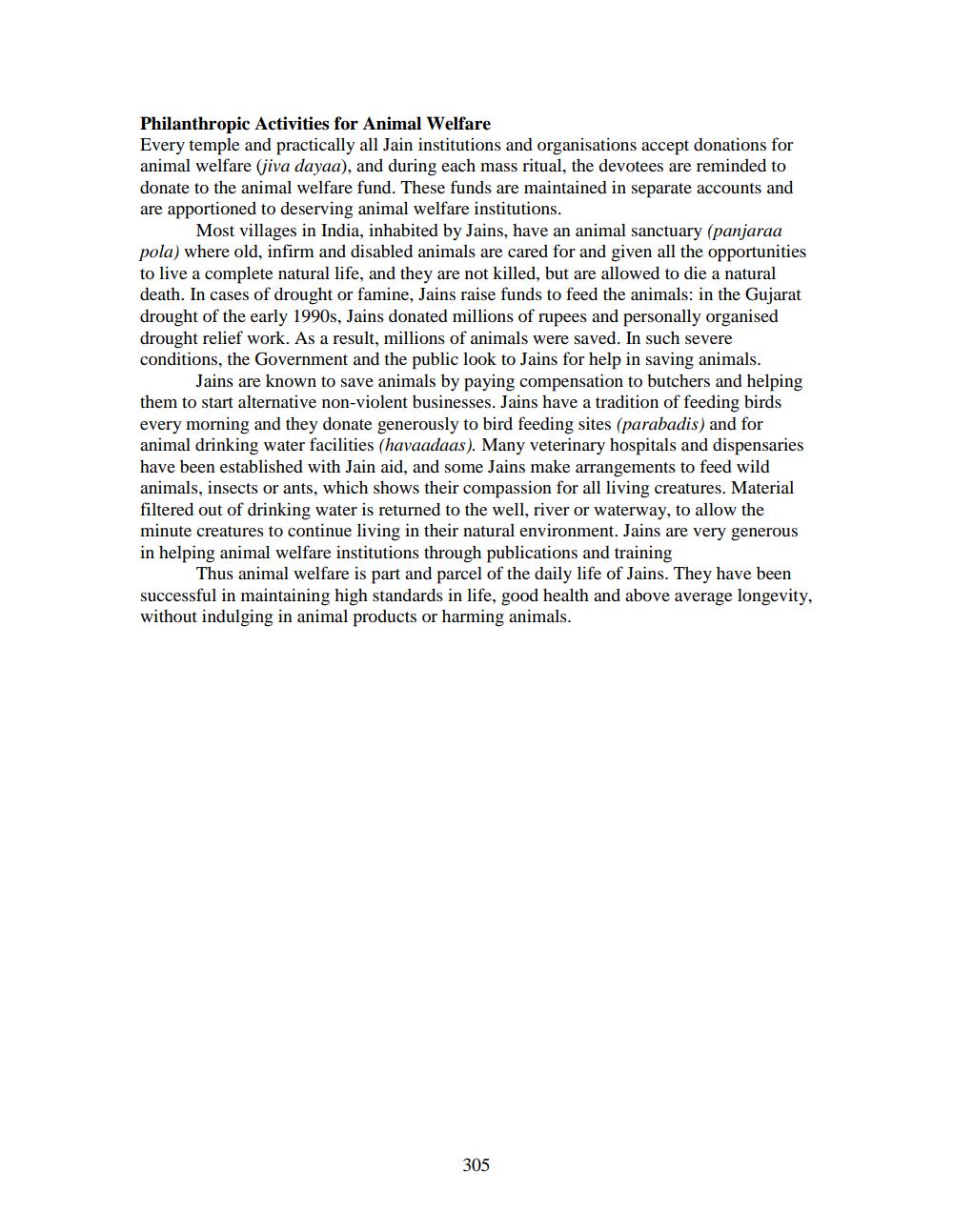________________
Philanthropic Activities for Animal Welfare
Every temple and practically all Jain institutions and organisations accept donations for animal welfare (jiva dayaa), and during each mass ritual, the devotees are reminded to donate to the animal welfare fund. These funds are maintained in separate accounts and are apportioned to deserving animal welfare institutions.
Most villages in India, inhabited by Jains, have an animal sanctuary (panjaraa pola) where old, infirm and disabled animals are cared for and given all the opportunities to live a complete natural life, and they are not killed, but are allowed to die a natural death. In cases of drought or famine, Jains raise funds to feed the animals: in the Gujarat drought of the early 1990s, Jains donated millions of rupees and personally organised drought relief work. As a result, millions of animals were saved. In such severe conditions, the Government and the public look to Jains for help in saving animals.
Jains are known to save animals by paying compensation to butchers and helping them to start alternative non-violent businesses. Jains have a tradition of feeding birds every morning and they donate generously to bird feeding sites (parabadis) and for animal drinking water facilities (havaadaas). Many veterinary hospitals and dispensaries have been established with Jain aid, and some Jains make arrangements to feed wild animals, insects or ants, which shows their compassion for all living creatures. Material filtered out of drinking water is returned to the well, river or waterway, to allow the minute creatures to continue living in their natural environment. Jains are very generous in helping animal welfare institutions through publications and training
Thus animal welfare is part and parcel of the daily life of Jains. They have been successful in maintaining high standards in life, good health and above average longevity, without indulging in animal products or harming animals.
305




